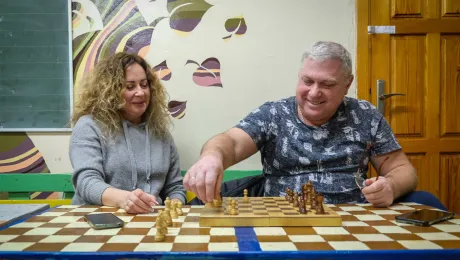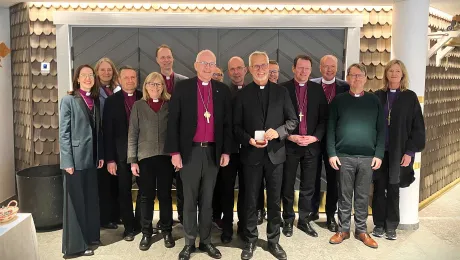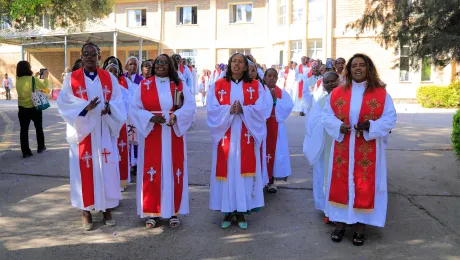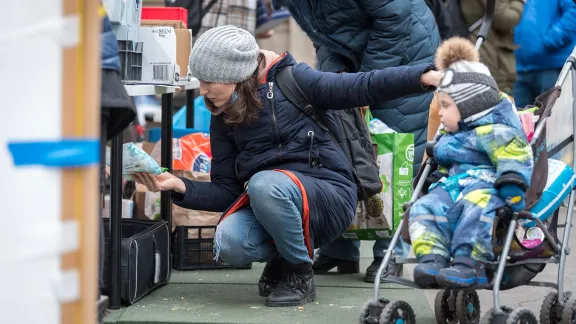
Ukrainian refugee woman Alona looks at supplies at one of the aid workersâ stands at Nyugati train station in Budapest. Alona, her 1.5-year-old son, and her mother arrived from Ukraine on 6 March, following a 26-hour long journey from the capital city Kyiv. All photos: LWF/Albin Hillert
“I am proud of the people of my church,” says Bishop Fabiny
(LWI) – Since Russian troops launched their invasion of Ukraine on 24 February, Hungary has seen more than 200,000 refugees cross its border from Ukraine by 8 March, seeking refuge from war and an increasingly desperate humanitarian situation. The Evangelical Lutheran Church in Hungary (ELCH) and its partners are actively responding to their most urgent needs.
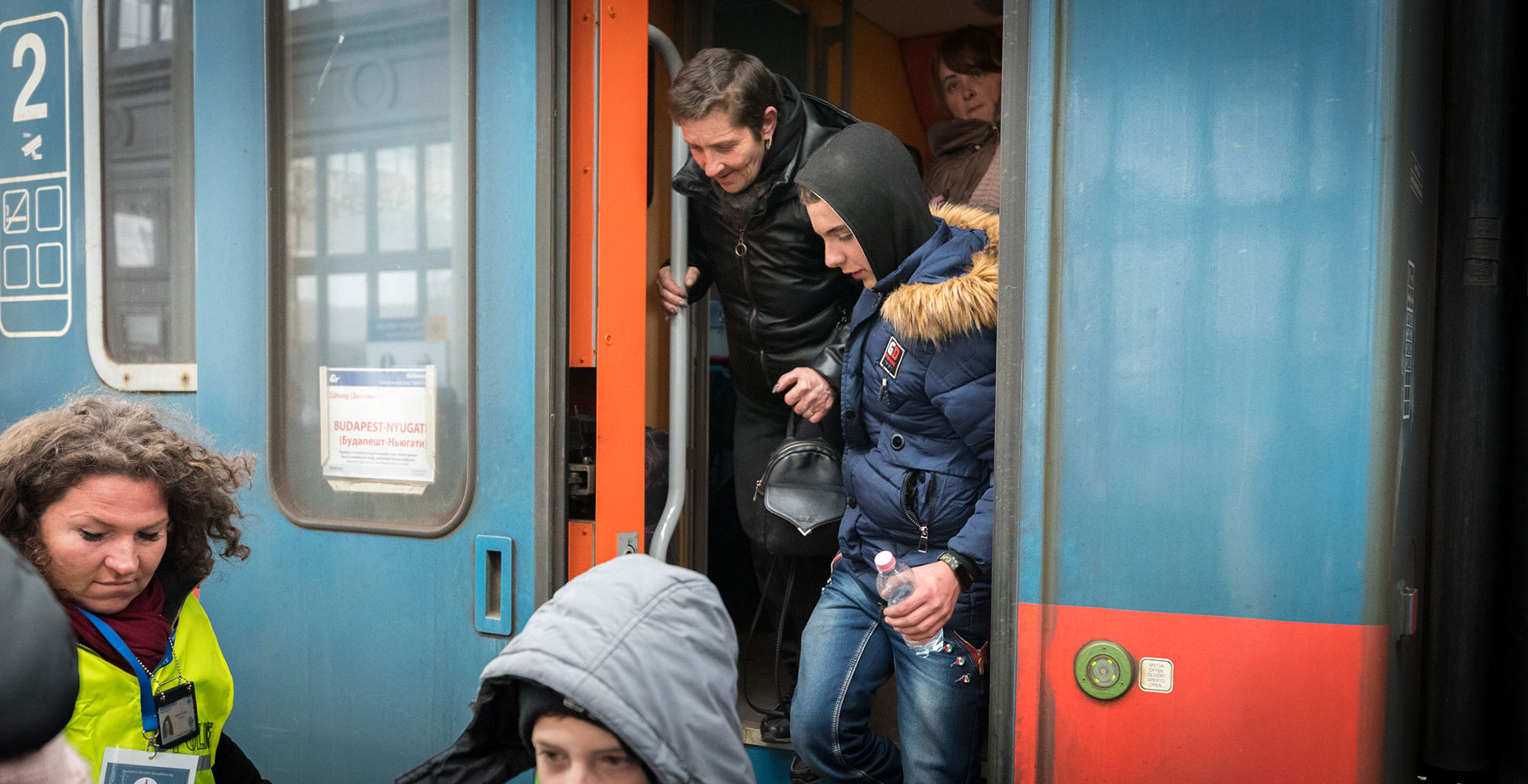
Families disembark a train at Nyugati station in Budapest, greeted by an aid worker supporting newly arrived families from Ukraine. The station has become a central entry point for refugees.
In the capital city Budapest, numerous people have supported the incoming refugees. Some help the refugees arriving at central transport points in the city, including arranging free accommodation, tickets for onward travel, necessary items such as snacks and food, diapers for the children, clothes, and essential medical supplies. Others prepare relief packages for distribution at the border or onward transportation into Ukraine. Others open up simple homes for families fleeing the war.
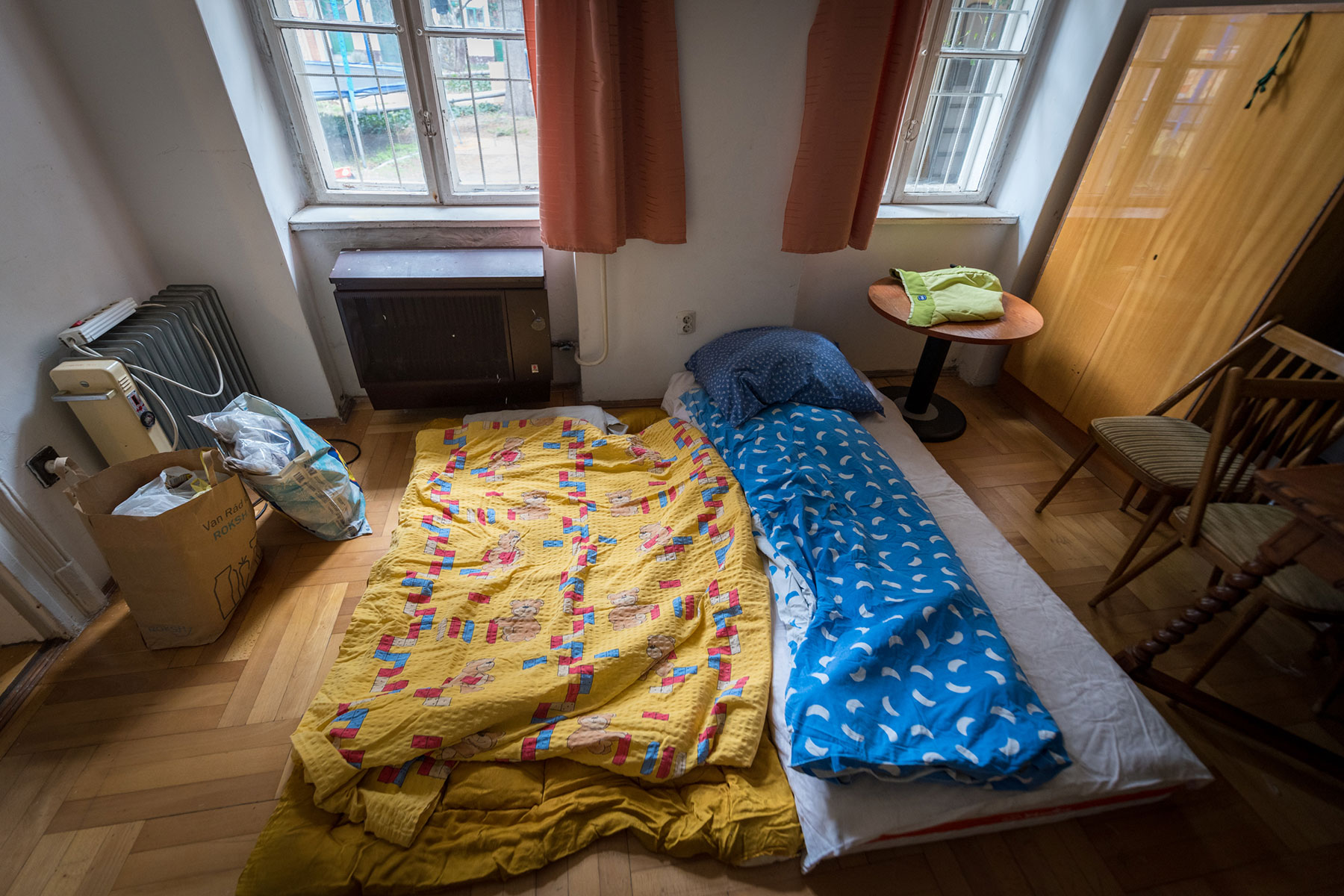
Beds made in an apartment arranged for incoming refugees from Ukraine, at Mandák house.
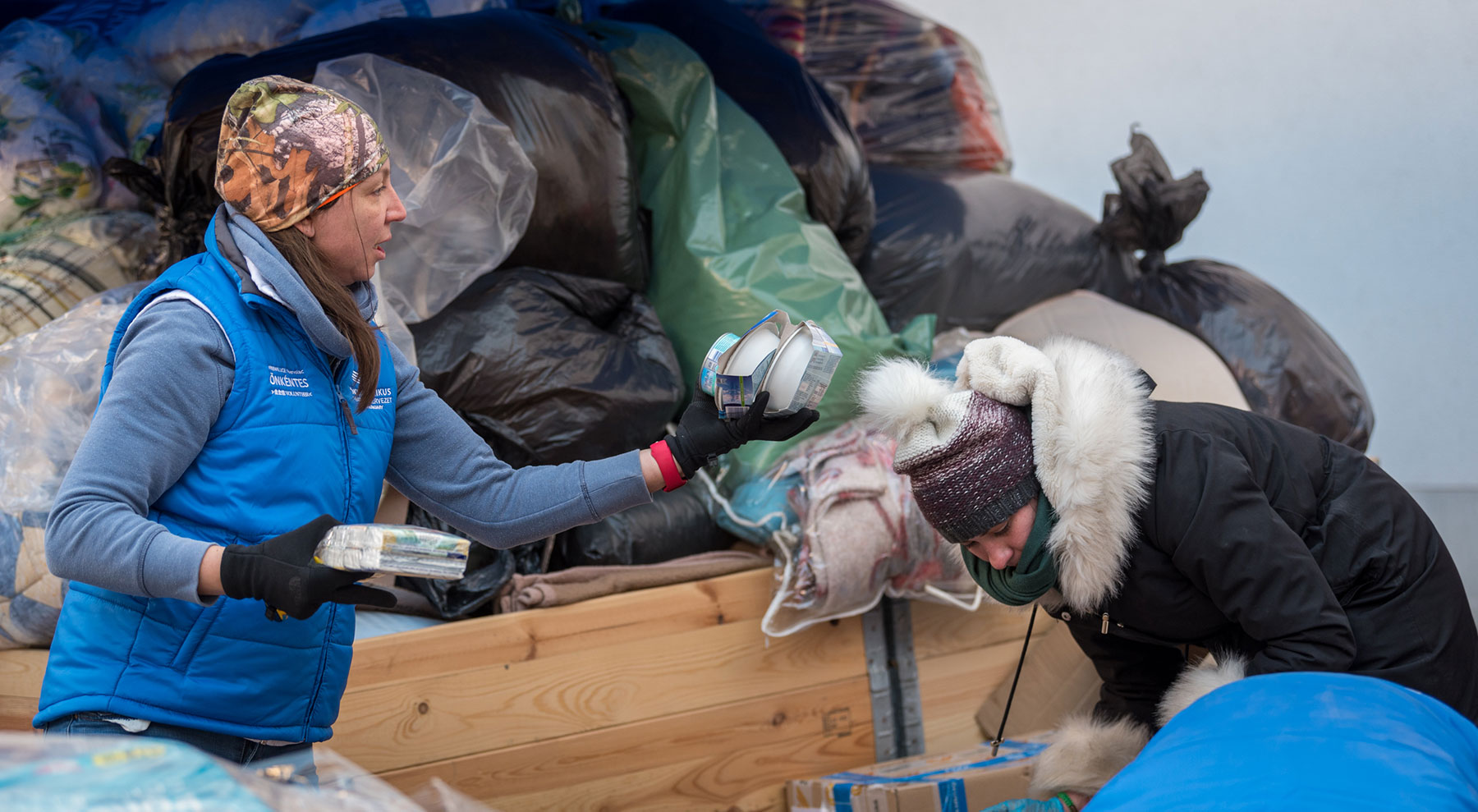
In Budafok, Budapest, a dozen volunteers of Hungarian Interchurch Aid (HIA) are helping at a collection point for donations and other material for Ukrainian refugees. HIA receives, sorts, and logs donations from the public. They are channeled onward to the border areas between Ukraine and Hungary and into Ukraine, where, as an early response, HIA has set up two refugee support centers in the Subcarpathian region, in addition to one in Lviv.
Ukrainian crisis “shifts the whole perspective”
Social worker Júlia Andrási works for the integration center of the ELCH, at Mandák house in Józsefváros district. Mandák house is home to the Lutheran congregation of Budapest Józsefváros, a socially active congregation that serves some of the city’s poorest areas.
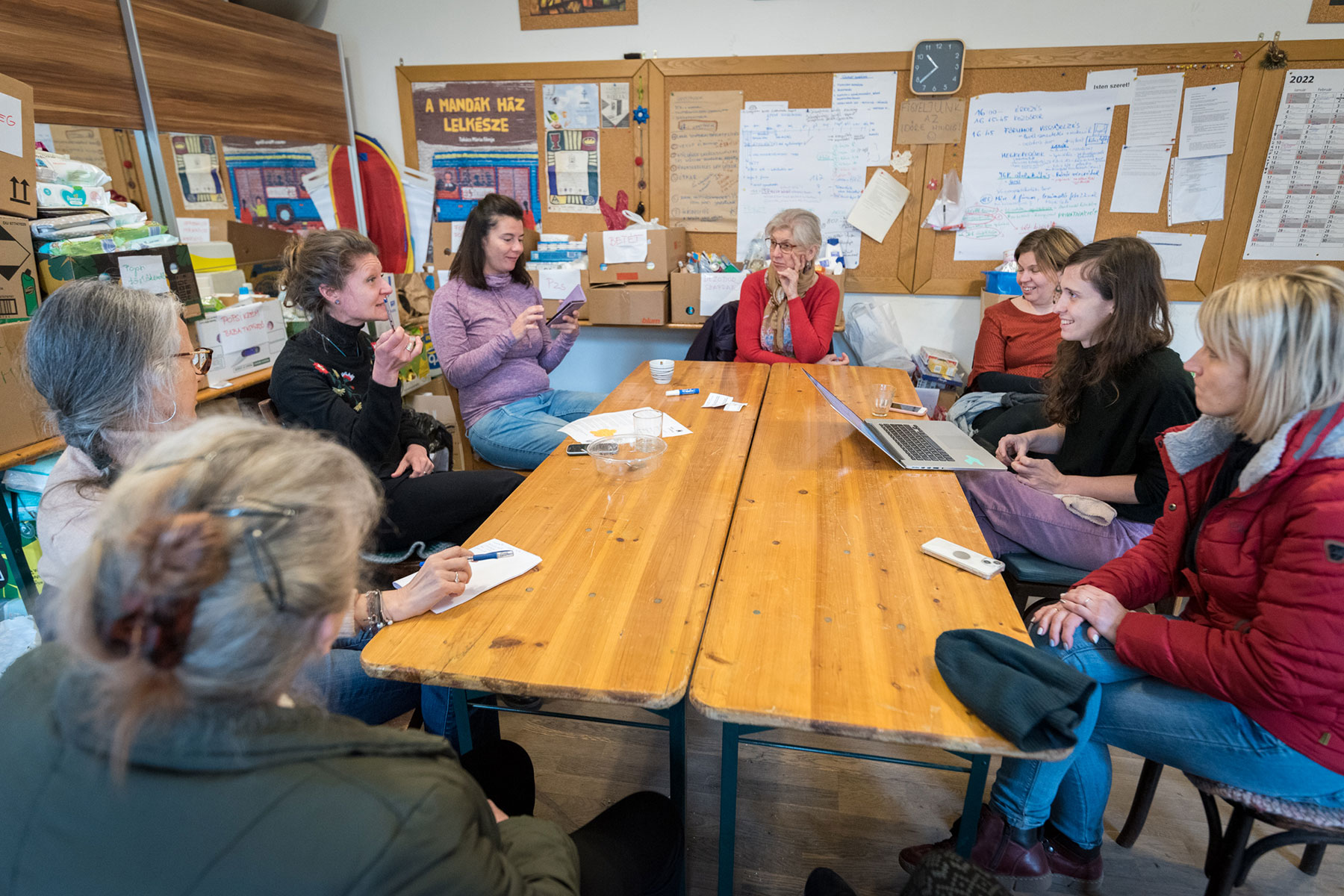
Social worker Júlia Andrási (left) leads a volunteer worker coordination meeting at Mandák house at the parish in Józsefváros.
Under the leadership of local pastor Rev. Márta Bolba, the parish has become well-known for ensuring its doors are open to people from all walks of life.
Andrási says more than 100 people have volunteered to help organize and provide support for incoming refugees from Ukraine. “In this hour, I should be here doing my normal job. But the Ukrainian crisis shifts the whole perspective.”
“Many people arriving here do not have accommodation,” Andrási notes. “So, we need to find it for them.” Many are ethnic Hungarians living in Ukraine, but some are Roma. “They face particular discrimination as they look for a place to stay after fleeing,” Andrási says.
“Many people in the Lutheran church have offered accommodation to people coming to Hungary,” Andrási says. Nevertheless, it required much coordination to match hundreds of beds offered with people needing them in one week.
“It’s like people feel free to help”
“We normally serve some 200-300 refugees each year, offering counseling, food tickets, accommodation, and medical support,” says Attila Mészáros, who serves as coordinator of the refugee response of the ELCH. “That is normally. Our capacity now needs to increase.”
Mészáros is encouraged by the welcoming response of Hungarian society. “It is beautiful to see the huge goodwill of the community, in church, in grassroots civil society organizations, and among individuals,” he says. “Now that the official national policies towards refugees seem to be shifting, it’s like people feel freed to help.”
The ELCH now coordinates support, financial aid, and other measures assisting refugees at the central office.
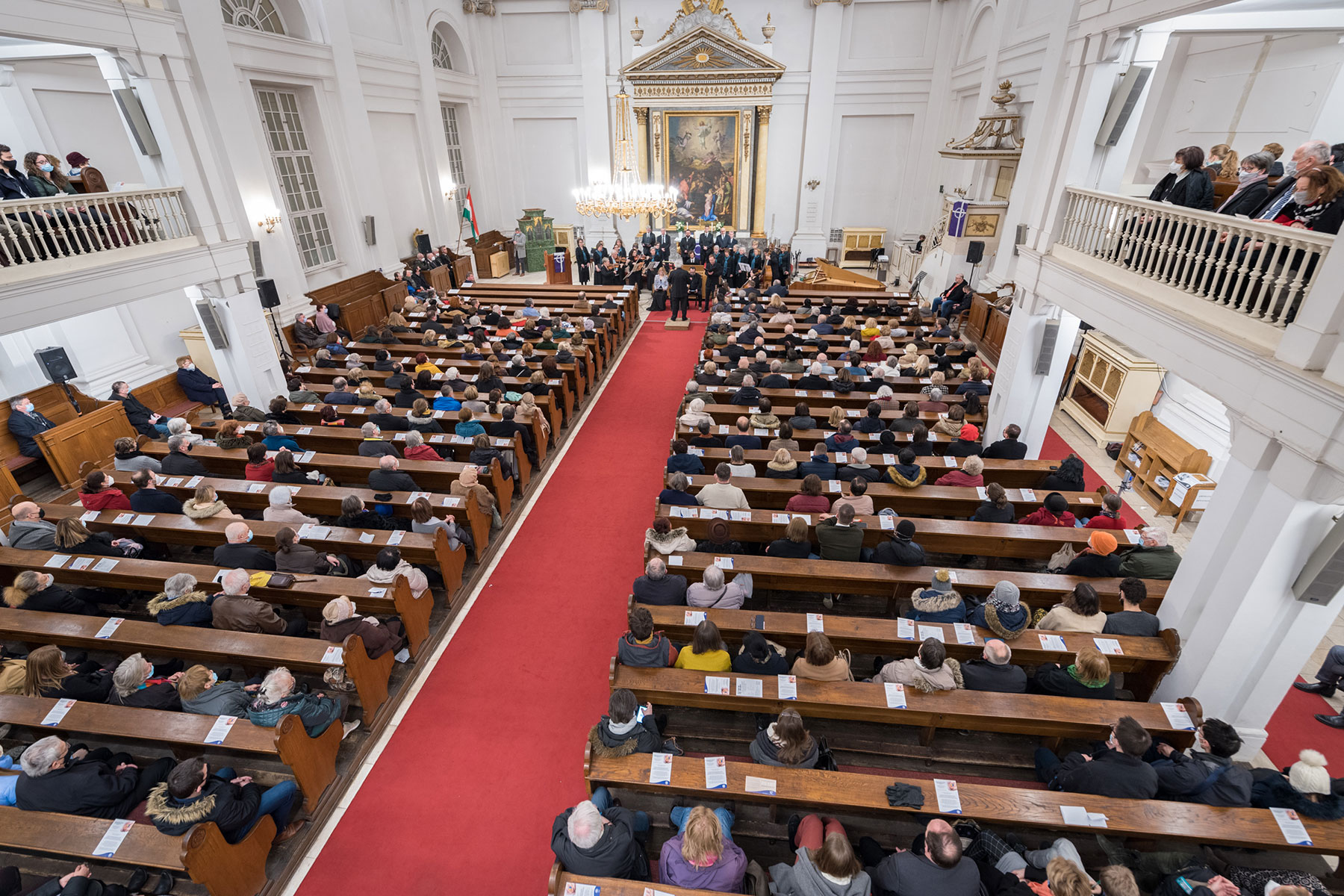
On 6 March, hundreds of people gathered for a charity concert organized at the Lutheran church at Deák tér in Budapest to support Ukrainian refugees.
For Mészáros, the highlight of this response is the creative ways communities and local parishes are taking action, identifying the individual needs of newly arrived refugees, and finding solutions.
“Now we need to look at how we can prolong this willingness to help, to extend over several months or even years. A lot is uncertain. We don’t know how many refugees will come, and we also don’t know how many will stay in Hungary or go elsewhere. But we also know that even when a war ends, a country’s struggles do not end immediately,” Mészáros concludes, mentioning his own experience as a refugee of the Balkan wars.
“I need to say I am proud of the people of my church, whether they are professionals or volunteers, for the warm spirit in which they are welcoming people,” said Tamás Fabiny, ELCH presiding bishop. “We now need to sustain this willingness to help. And increase our professional capacity to keep this going.”
By Albin Hillert, editing: LWF/A. Weyermüller
LWF's is coordinating a response through its member churches in Ukraine and the neighboring countries to ensure support to Ukrainian refugees as well as their safe and dignified arrival. The work is supported by LWF's funding partners, including the Evangelical Lutheran Church in America.
